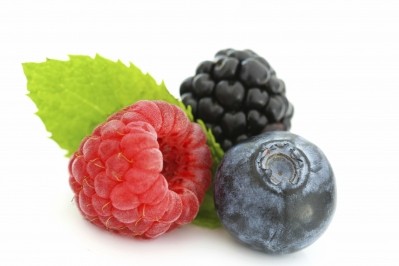ARS cultivar provides early-season blueberries
The early-ripening rabbiteye blueberry cultivar, termed Prince, is the latest variety to be released by researchers at USDA’s Agricultural Research Service (ARS) Southern Horticultural Laboratory in Poplarville, Mississippi.
Blueberries, nature's only 'blue' food, are a rich source of polyphenols, potent antioxidants that include phenolics acids, tannins, flavonols and anthocyanins. The berries are said to have a number of positive health effects, including cholesterol reduction, and prevention against some cancers and neurodegenerative diseases such as Alzheimer's.
The popularity of the berry has increased in recent years with the publication of more science supporting its health benefits, and an overall consumer move towards 'superfruits' and all things 'antioxidant'.
Climate concerns
However, steady supply of the healthy berry can be impacted by the Mississippi climate: Occasional spring frosts and excessive heat and humidity can be “brutal” on blueberry farming, according to ARS.
The agency said its new variety has an extended bloom period, providing “insurance” against early spring frost. It is also said to be more adapted to the region’s hot and humid climate than other varieties.
“Most notably, Prince ripens four to five days earlier than the earliest-ripening rabbiteye blueberry varieties, allowing growers to capitalize on the lucrative early-season, fresh-blueberry market period,” said the center.
Prince, which was tested over three years in Stone County and McNeil, Mississippi, produced “high scores” for color, firmness, flavor and size, said ARS.
The new cultivar is a cross between MS 598 and Florida 80-11. The blueberries are said to be “medium in size and color with a mild flavor and less tartness than many other rabbiteye varieties”.
ARS is supplying a limited number of the Prince blueberry plants for nurserymen for propagation and sale to growers.
According to ARS, 30 years ago there were no blueberries growing in Mississippi. Now 2,500 acres are grown in the region, with the figure jumping to 30,000 acres when other southern states are taken into account, including Alabama, Florida, Georgia, Louisiana, North Carolina, South Carolina and Texas.
This corresponds to $100m worth of fruits from the southern region alone.
Healthy image
The berry, which is already firmly engrained in consumer minds for its apparent cholesterol lowering abilities, has become a popular ingredient in functional foods or products simply perceived as 'healthier'.
Recent research on the berries include a study published last year that found that eating a diet rich in blueberries may reduce the severity of neurodegenerative diseases such as Alzheimer's or cognitive disorders relating to ageing.
Another study from 2007 found that pterostilbene, a compound found in blueberries, may prevent the development of tumors in the colon.
In 2006, scientists reported that blueberry extracts inhibited the growth of liver cancer cells in the lab, potentially adding to the growing list of health benefits for the 'superfood'. Another study that year found that blueberries could strengthen blood vessels against oxidative stress that may lead to heart disease.





